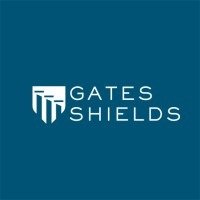Best Foreclosure Lawyers in Overland Park
Share your needs with us, get contacted by law firms.
Free. Takes 2 min.
Free Guide to Hiring a Real Estate Lawyer
List of the best lawyers in Overland Park, United States
About Foreclosure Law in Overland Park, United States
Foreclosure in Overland Park, like the rest of Kansas, operates under judicial foreclosure law. This means that when a borrower fails to meet their mortgage obligations, the lender must obtain a court order to seize and sell the property. Lenders commonly initiate foreclosure proceedings after several months of missed payments, but foreclosure timeline can vary greatly depending on individual circumstances.
Why You May Need a Lawyer
Foreclosure cases can be complex and challenging to navigate without proper legal guidance. A foreclosure lawyer can be invaluable in various situations, such as when you encounter difficulties understanding the foreclosure notice, want to negotiate with your lender for a loan modification or short sale, or seek to contest the foreclosure in court. A credible foreclosure lawyer can help protect your rights, provide viable legal options, and potentially help you save your home.
Local Laws Overview
In Overland Park, Kansas, the law provides borrowers with several protections against foreclosure. For instance, homeowners have the right to reinstatement before the sale of their property. You are also entitled to a redemption period after sale. Lenders must follow a strict timeline and thorough process, including proper notifications, before they can proceed with selling your home. Understanding these laws can greatly influence the outcome of your foreclosure case.
Frequently Asked Questions
What is reinstatement in foreclosure?
Reinstatement allows you to stop the foreclosure process by catching up on your missed payments, including all interest, penalties, and legal fees, before a certain deadline.
What is a redemption period?
This is the period after the property sale where the homeowner can reclaim their property by paying the sale price plus any additional costs incurred by the purchaser.
Can I contest a foreclosure in court?
Yes, you can contest a foreclosure in court. This typically involves proving that the lender did not follow the correct foreclosure process or attempts to challenge the legitimacy of the mortgage.
What happens if my property is sold at a foreclosure sale?
Once your property is sold at a foreclosure sale, you lose ownership. In Kansas, you have a post-sale statutory right of redemption that allows you to redeem the property within a certain period.
What is a short sale?
A short sale occurs when a lender agrees to accept a mortgage payoff amount less than what is owed to prevent foreclosure. It requires the lender’s approval and can be a viable option if your property's value has decreased.
Additional Resources
You can reach out to the Johnson County Bar Association for referrals to local real estate lawyers who specialize in foreclosures. Helpful government resources include the United States Department of Housing and Urban Development (HUD) and the Kansas Legal Services, both of which offer free or low-cost foreclosure avoidance counseling.
Next Steps
If you're facing foreclosure, seek legal counsel immediately to learn about your rights and potential defenses. Reach out to local legal aid organizations or retain a private lawyer specializing in foreclosure cases. Document all communication with your lender and ensure to respond to legal actions if any. Remember not to ignore the situation as the problem won't disappear, and taking proactive steps can make a significant difference in your case.
Lawzana helps you find the best lawyers and law firms in Overland Park through a curated and pre-screened list of qualified legal professionals. Our platform offers rankings and detailed profiles of attorneys and law firms, allowing you to compare based on practice areas, including Foreclosure, experience, and client feedback.
Each profile includes a description of the firm's areas of practice, client reviews, team members and partners, year of establishment, spoken languages, office locations, contact information, social media presence, and any published articles or resources. Most firms on our platform speak English and are experienced in both local and international legal matters.
Get a quote from top-rated law firms in Overland Park, United States — quickly, securely, and without unnecessary hassle.
Disclaimer:
The information provided on this page is for general informational purposes only and does not constitute legal advice. While we strive to ensure the accuracy and relevance of the content, legal information may change over time, and interpretations of the law can vary. You should always consult with a qualified legal professional for advice specific to your situation.
We disclaim all liability for actions taken or not taken based on the content of this page. If you believe any information is incorrect or outdated, please contact us, and we will review and update it where appropriate.








